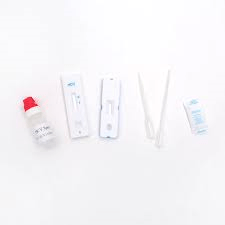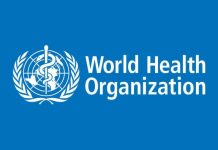
The World Health Organisation (WHO) says it has prequalified the first self-test kit for hepatitis C virus (HCV), marking a pivotal step in expanding access to testing and diagnosis worldwide.
The newly approved product, named OraQuick HCV self-test, is developed by OraSure Technologies. It is founded on the formerly existing WHO-prequalified OraQuick HCV Rapid Antibody Test, originally approved in 2017 for professional use.
In a press statement by the WHO, sighted by Pharmanewsonline, the apex health institution said this new self-test version is tailored for the public in providing a comprehensive kit enabling individuals to conduct the test independently.
The WHO Director for the Department of Global HIV, Hepatitis and STI Programmes, Dr Meg Doherty, underscored the urgency of this milestone, saying 3500 lives succumb to viral hepatitis daily. She noted that despite 50 million people worldwide living with hepatitis C, only 36 per cent have been diagnosed, with merely 20 per cent, receiving curative treatment by the end of 2022.
“The addition of this product to WHO’s prequalification list signifies a safe and effective means to expand HCV testing and treatment, ensuring more individuals receive necessary diagnoses and interventions, thereby advancing the global goal of HCV elimination”, she stated.
According to the document, underwritten largely by Unitaid, a global health initiative, national-level HCVST projects have showcased high levels of acceptance and viability. These initiatives empower individuals by offering choice, autonomy, and access to stigma-free self-care services.
Prior to this development, the WHO had endorsed hepatitis C virus self-testing (HCVST) in 2021, advocating its integration alongside existing testing services in countries. The decision stemed from evidence highlighting its capability to enhance accessibility and utilisation of services, particularly among populations historically reluctant to seek testing.
WHO Director for the Department of Regulation and Prequalification, Dr Rogério Gaspar, also emphasised the importance of this development for low- and middle-income countries, adding that the availability of a WHO prequalified HCV self-test will provide essential, safe, and affordable self-testing options, critical to reaching the goal of diagnosing 90 per cent of all HCV cases. “This achievement significantly enhances access to quality-assured health products for individuals in low-income settings.”
WHO’s prequalification programme for in vitro diagnostics (IVDs) evaluates various tests, including those detecting HCV antibodies, against stringent quality, safety, and performance criteria. This framework plays a pivotal role in assisting nations in achieving high standards of diagnosis and treatment monitoring.
The apex health institution said it remains committed to evaluating additional HCV self-tests, promoting evidence-based implementation, and collaborating with communities to ensure equitable access to these essential tools worldwide.










